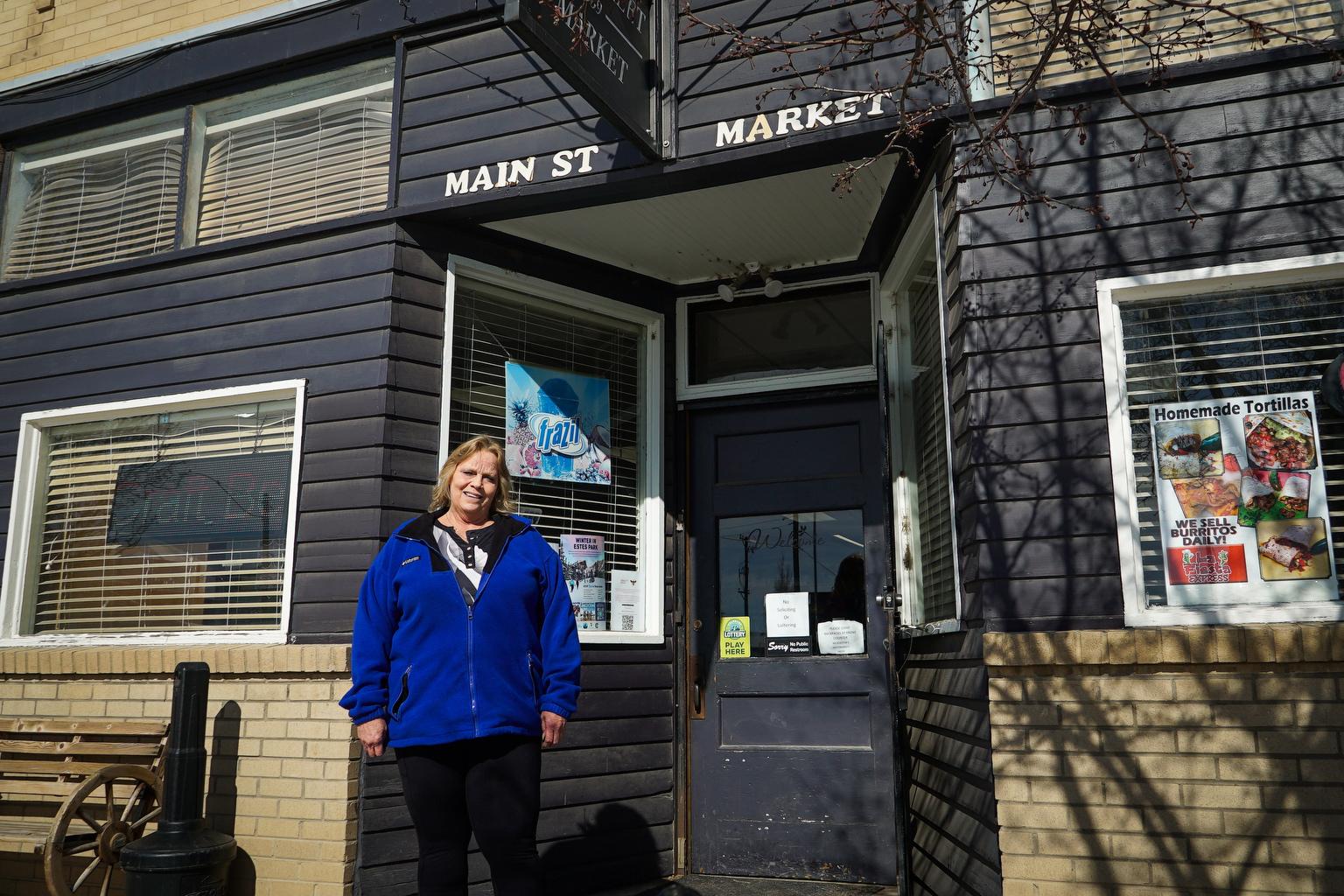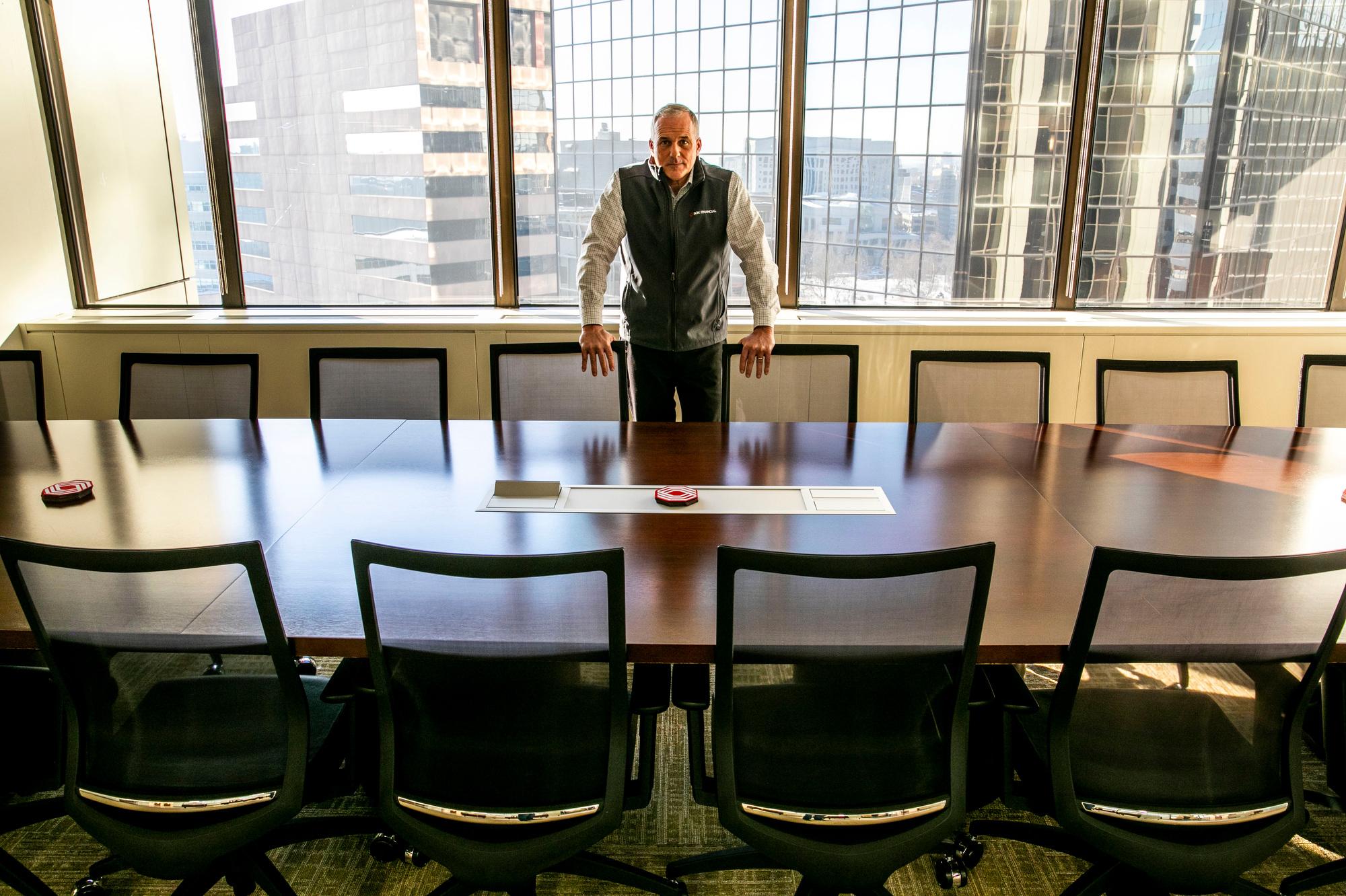
Under ordinary circumstances, there would be about 300 people spread over nine floors in BOK Financial’s Denver headquarters at 1600 Broadway. On a recent weekday, there were about a dozen on the building’s upper floors.
“It’s a different feel,” said Bill Sullivan, the CEO of the Colorado Market for BOK Financial, as he gestured toward a long corridor of largely empty offices in the company’s newly renovated space.
It’s been almost a year since businesses first banished workers from the office. Whether it’s due to safety precautions, or simply because a lot of people enjoy the convenience of working from home, a vast majority of office workers haven’t returned. Opinions are split on what happens once it’s safe to go back to the office.
“Not commuting or paying for parking, or paying for lunch downtown, and just having the ability to work from home — there’s a lot to like about it,” Sullivan said.
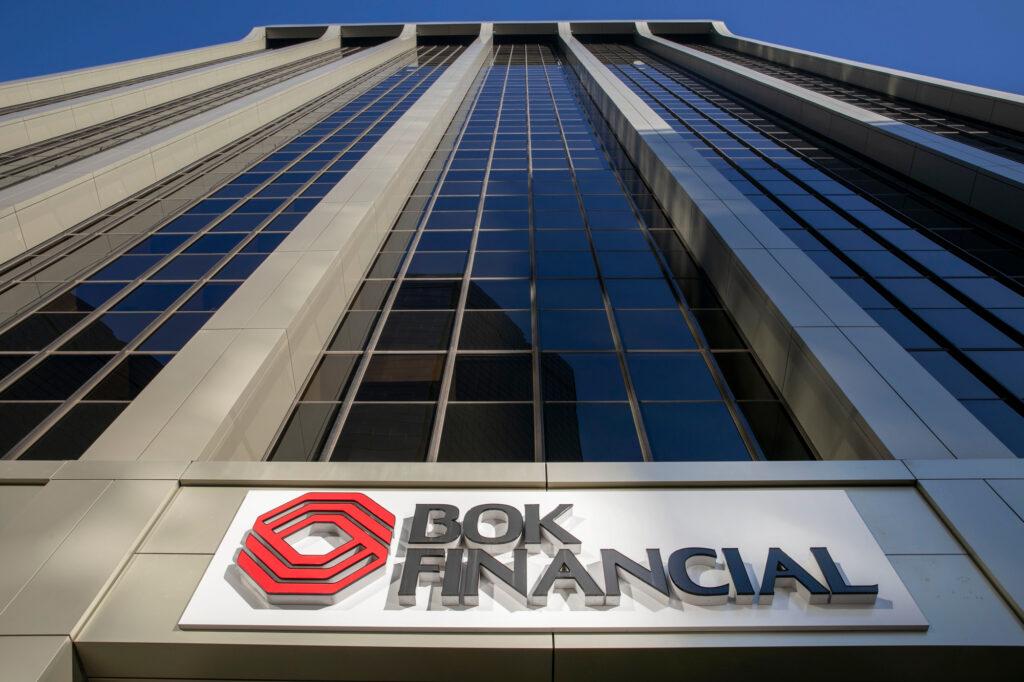
It can feel like the pandemic has ushered in a new era of flexible work arrangements. Tech giants like Facebook and Twitter have announced that employees can work remotely permanently. Business districts across the country — including downtown Denver — are reeling as restaurants, hotels and retailers that cater to office workers watch their customers disappear.
But some executives aren’t convinced the fully remote trend will outlast the pandemic. Sullivan said he plans on bringing everybody back, more or less full time, once it’s safe to do so. The remote work policy will be more flexible than it was prior to the pandemic, but the office will still be the company hub, he said.
BOK Financial more than doubled its square footage at 1600 Broadway after acquiring CoBiz Financial two years ago. Sullivan says the bank wanted everybody under one roof — and still does. He hopes that with vaccines, they could have everybody back in the office by the end of this year.
BOK Financial completed an overhaul of the space in October. The top floor of the 26-story building is designed in a traditional format, with individual offices lining the hallways. The partitions are glass, which makes for a nice view and a lot of natural light. But there’s something else Sullivan likes about the set up.
“What I like about it is you can’t hide behind a closed door,” Sullivan said. “You’re still visible if I want to walk by your office and I need to chat with you about something, I can knock on the glass and grab your attention pretty easily.”
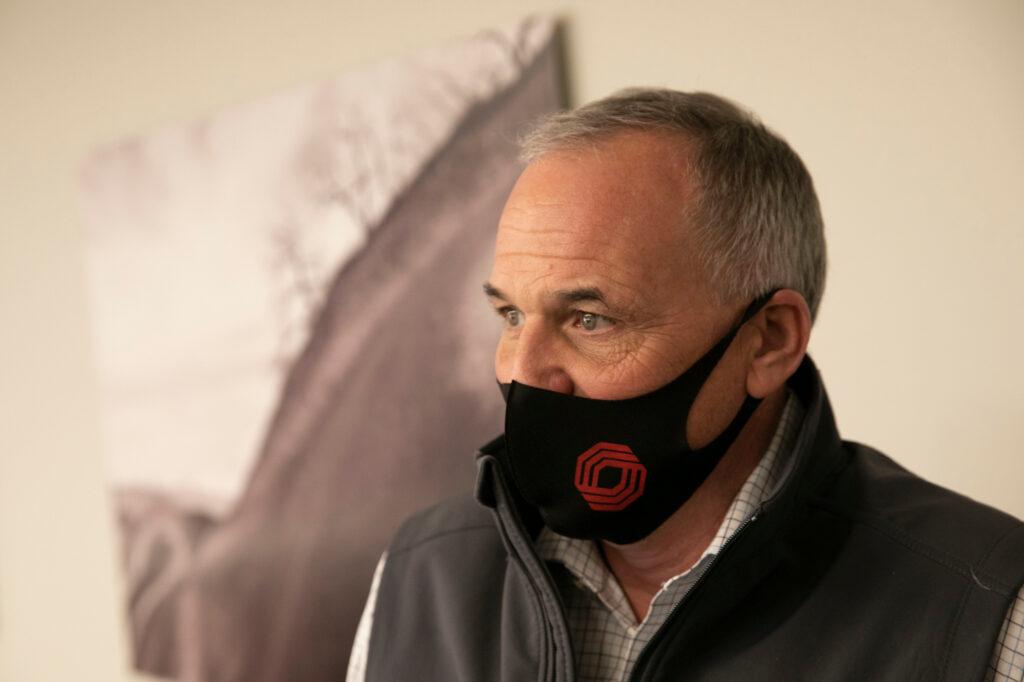
For now, there’s not many people there for Sullivan to talk to. Currently, between 10 and 15 percent of staff are in on any given day.
Sullivan says employees have performed well under the circumstances. Still, Zoom meetings still aren’t a great substitute for in-person interactions, he said.
“A lot of us spend a lot of time in the office and that’s still an important social aspect of it and you miss that,” he said. “We do look forward to getting everybody back in and I think it does make a big difference.”
But the numbers indicate some businesses aren’t yet sure of their plans.
The office vacancy rate is the highest it’s been in almost 10 years in Denver, according to CBRE, a commercial property brokerage. Businesses have put more than 2 million square feet of office space on the market to sublet since the pandemic started — meaning they want somebody else to take the space off their hands, CBRE data show.
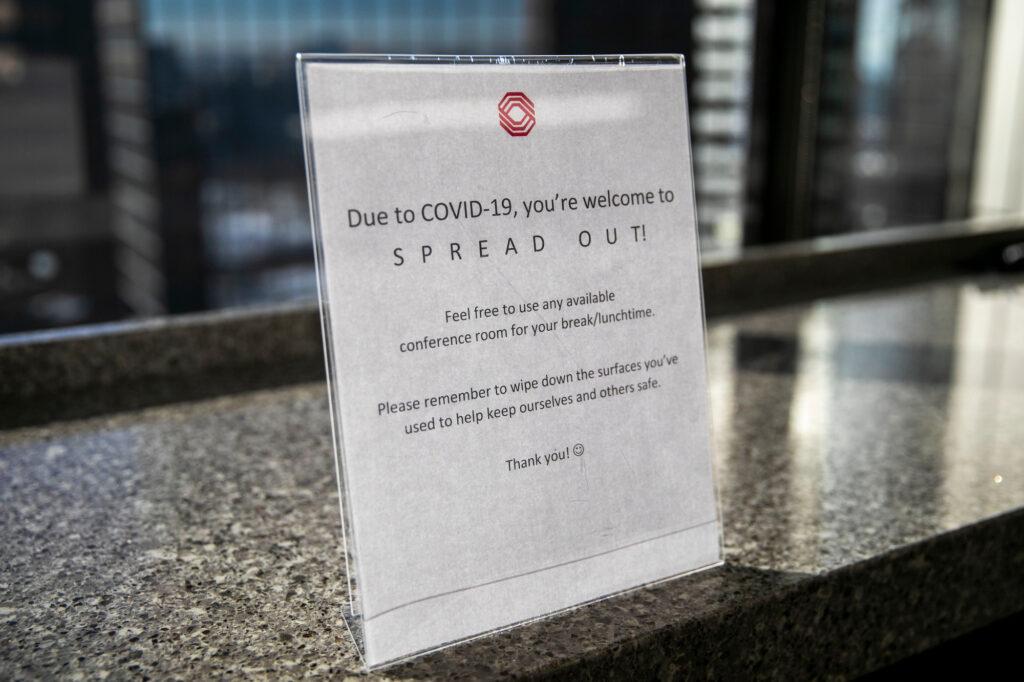
Pete Schippits is the President of CBRE’s Mountain-Northwest Division. He said they don’t see a mass shift to companies abandoning office space entirely. As the pandemic drags on, companies are seeing the downsides to remote work, such as the difficulty of training new employees, he said.
Some of the empty space in Denver isn’t necessarily due to remote work, Schippits said. Instead, it’s because of financial difficulties, particularly in the energy sector, he said.
But still, there’s no doubt that businesses are rethinking office space for the future, Schippits said. Some businesses are considering reducing their footprints, while others are thinking about using space differently.
For example, many companies are considering whether they need to dedicate more space for group meetings, and less space to individual workstations, he said.
BOK Financial’s Sullivan said that aside from the bottles of hand sanitizers everywhere, his firm stuck with the same plan they had when the remodel began prior to the pandemic.
“No design changes because of COVID,” he said. “We’re thinking longer-term about that and we expect people to be back in and fully utilize this space again.”







